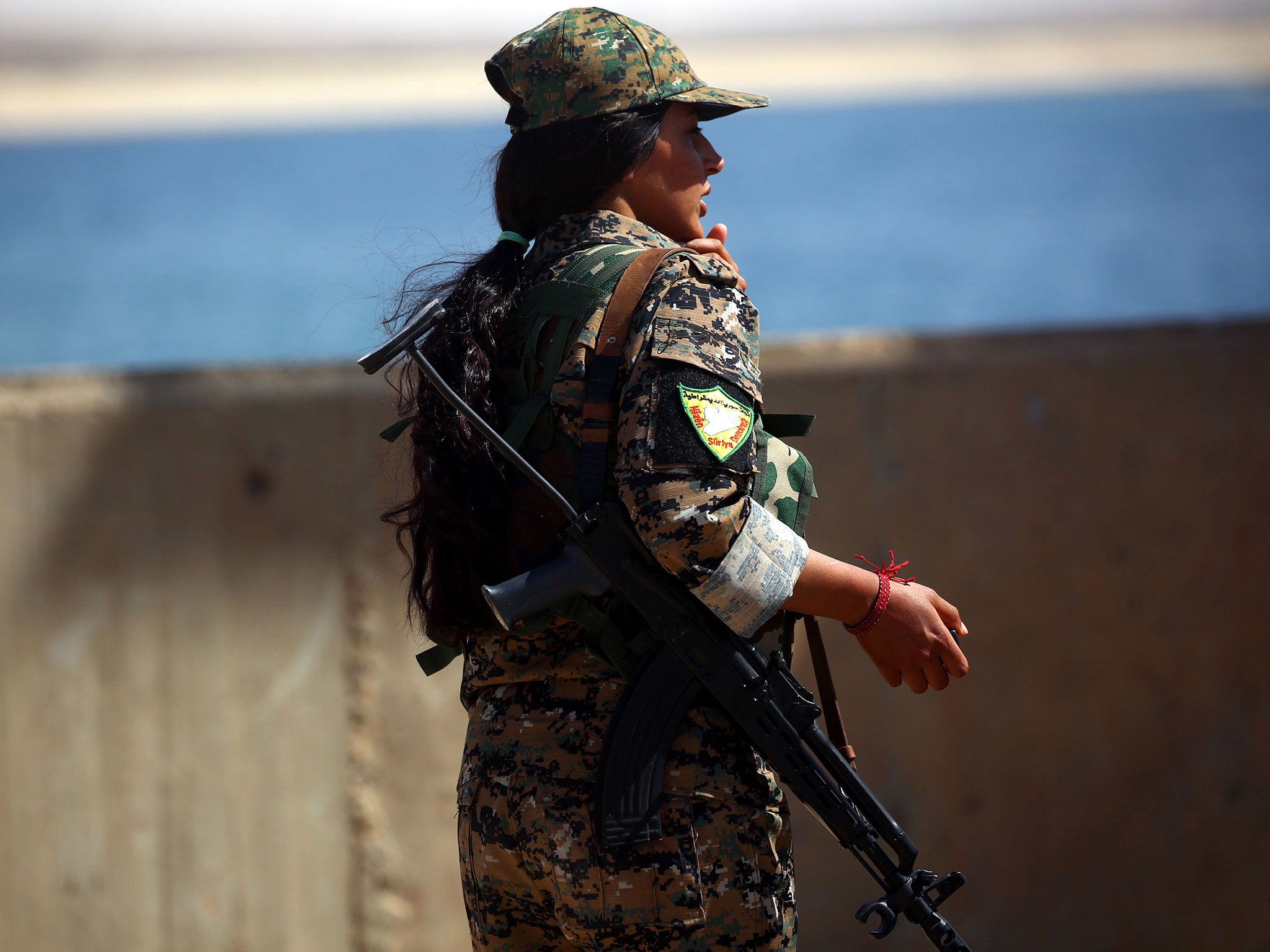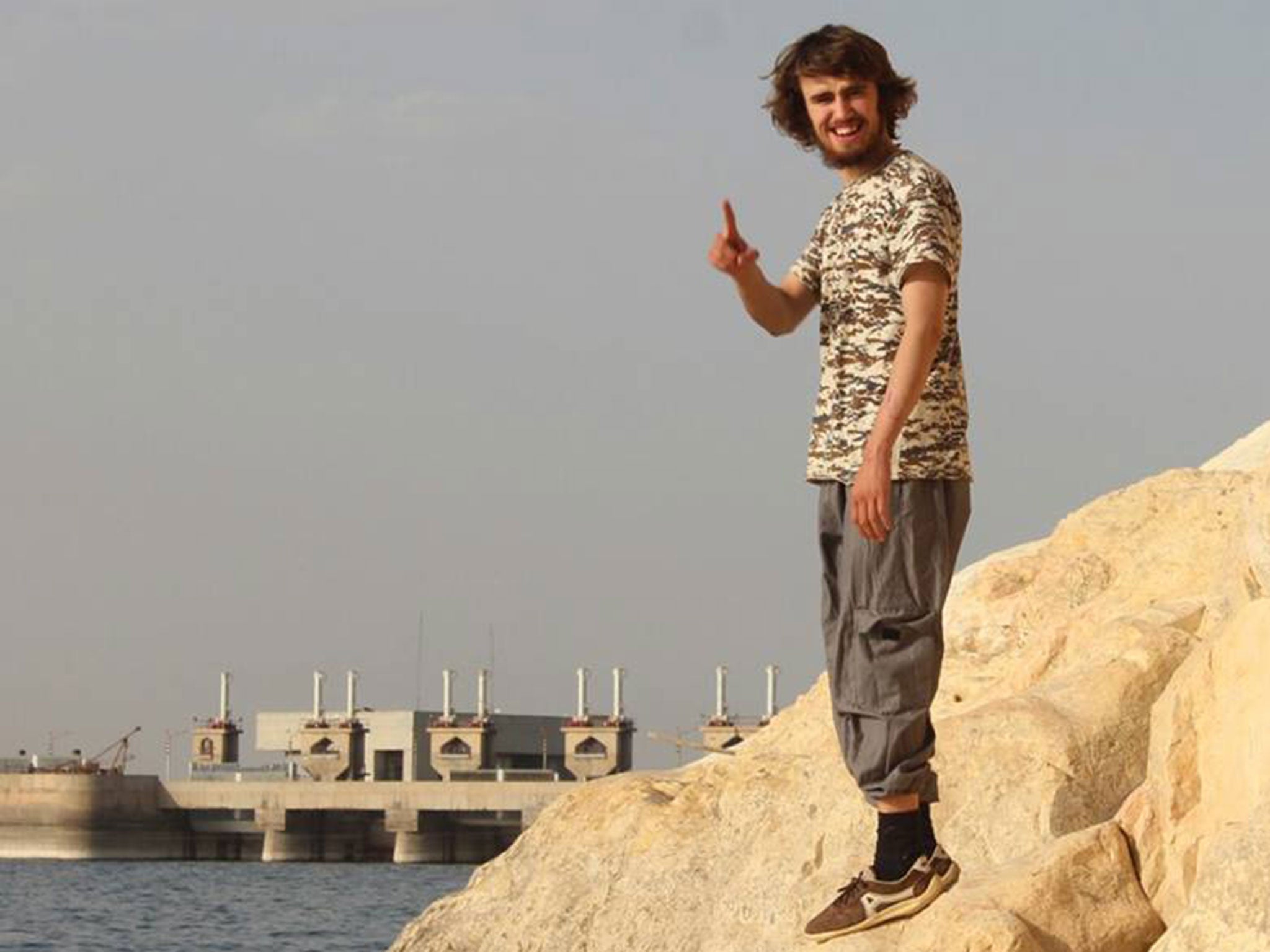Isis gives up Tabqa Dam in exchange for fighters' lives in deal with US-backed forces advancing on Raqqa
US-led coalition confirms negotiations but will not say what jihadis were offered to retreat
US-backed forces are battling towards Isis’ largest remaining stronghold after gaining control of a strategic dam, but questions remain over a deal struck with the terrorist group in exchange for its retreat.
Jubilant Syrian Democratic Forces (SDF) troops took control of the deserted Tabqa Dam and a nearby town and airfield with minimal losses, following months of bloody battles to isolate the city of Raqqa.
US Central Command hailed the area’s “liberation”, but conceded its allies held negotiations with Isis militants in order for “force their surrender”.
“This is yet another victory by the [US-backed] Syrian Arab Coalition and the SDF, our most committed and capable ground force partners in the fight against Isis who remain hard at work erasing ISIS from the battlefield, liberating their own people and lands,” said spokesman Col John Dorrian.
He said a group of around 70 Isis fighters conceded to unspecified terms laid down by the SDF, including the dismantling of IEDs and booby traps, the surrender of heavy weaponry and forced withdrawal of remaining fighters from Tabqa city.
“The SDF accepted Isis' surrender of the city to protect innocent civilians and to protect the Tabqah dam infrastructure which hundreds of thousands of Syrians rely on for water, agriculture, and electricity,” a statement from US Central Command said.

Commanders would not confirm what was offered to Isis in the exchange, but said the US-led coalition tracked fleeing jihadis and targeted those who could be hit without civilian casualties.
Bashar al-Assad’s regime has been accused of making a series of deals with Isis over territory and oil but the evacuation is the first publicly acknowledged agreement struck by US-backed forces.
The Tabqa Dam sits on the Euphrates river just miles from Raqqa city, providing a key line of defence and channel for reinforcements, which have now been cut off.
The Pentagon said Isis had been using the dam as a “key coordination hub” after territorial losses in northern Syria saw the group move its foreign fighters and external attack planning to Tabqa in an effort to divert air strikes.
“The operation to seize the Tabqa Dam, airfield and city disrupts Isis operations in Raqqa and their ability to defend the city and plan and execute external attacks against the West,” a spokesperson added.
“With its seizure, the coalition has prevented a potential humanitarian disaster and ensured local citizens will continue to receive the dam's basic services.”
The dam houses a hydroelectric power station and holds back Syria’s largest reservoir – Lake Assad – which irrigates land both sides of the river, provides drinking water for Aleppo city and supports its own fishing industry.

Isis claimed damage from US air strikes had caused rising water levels and put it at imminent risk of collapse in March, although the SDF denied propaganda statements as civilians started to flee.
The military alliance said “maintaining their safety and the integrity of the dam” was a key priority as well as preventing civilian casualties, while claiming large numbers of Isis militants had surrendered to its fighters or been found hiding among civilians.
Footage broadcast by the SDF on Friday showed fighters scaling the deserted dam to throw Isis’ black flag to the ground, replacing it with huge banners bearing the logos of the Kurdish People’s Protection Units (YPG) and its women-only counterpart, the YPJ.
Among its fighters is British woman Kimmie Taylor, who told The Independent she was bracing for a “bloodbath” in Raqqa while preparing for the offensive earlier this year.
Socialist British and Irish volunteers are also on the SDF’s frontlines as part of the International Freedom Battalion.
Monitors said forces were continuing to claim villages surrounding Tabqa including el-Rafi and al-Ansar as the operation to cut off Raqqa ahead of a final push continued under a hail of US-led air strikes.
The SDF urged local civilians to join its forces as battles continued, vowing that it would hand Tabqa over to a civic council after security the area and clearing mines.
“We also declare that the Euphrates Dam is a Syrian national institution that will serve all Syrian regions without exception,” a statement said.
The advance came after Turkey hit out at the US for allying itself with a “terrorist organisation” over its own troops, with Ankara claiming support for Kurdish SDF factions it considers extremist “will have consequences”.
Recep Tayyip Erdogan launched an intervention last year to push back both the YPG and Isis from Turkey’s border and has been angered by the US-led coalition’s continued links with Kurdish separatists.
"Both the PKK and YPG are terrorist organisations and they are no different apart from their names," said his foreign minister Mevlut Cavusoglu.
"Every weapon seized by them is a threat to Turkey."
James Mattis, the US defence secretary, said the Trump administration would “work out any of the concerns”.
"We will work very closely with Turkey in support of their security on their southern border,” he added.
"It's Europe's southern border, and we'll stay closely connected."
Join our commenting forum
Join thought-provoking conversations, follow other Independent readers and see their replies
Comments
Bookmark popover
Removed from bookmarks